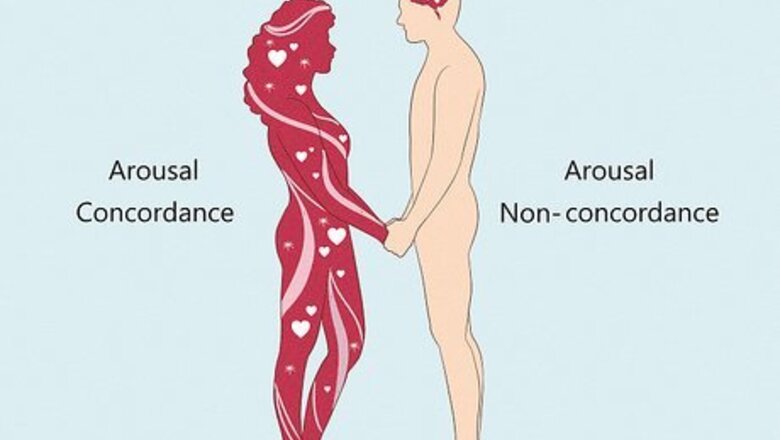
views
- “Arousal non-concordance” is when your physical and mental arousal don’t align, or when one happens without the other.
- You might experience differences in arousal due to medications, hormone imbalances, poor stimulation, or stress or other mental conditions.
- Use lubrication or toys, or perform kegels to stimulate your physical arousal. Also talk to your partner about what you like in bed to ensure safe, comfortable sex.
What is arousal non-concordance?
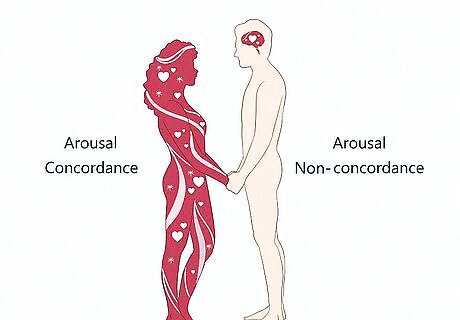
Arousal non-concordance is when physical and mental arousal don’t match. There are 2 main components to sexual arousal. Mental arousal refers to your thoughts and feelings during sex, while physical arousal refers to your body’s response, like an increased heart rate or genital activity. When these occur together, it’s called “arousal concordance. When they don’t—like when you have sexual thoughts or desire sex, but your body doesn’t respond to those thoughts—it’s called “non-concordance.” Arousal non-concordance comes in many forms. You might be physically turned on without wanting sex, or you might look forward to having sex with your partner, but you just can’t get your body to cooperate. In women, non-concordance often takes the form of not “getting wet” during sexual activity, which is when the vagina lubricates itself as a response to sexual stimulus. This lack of lubricant can make penetrative sex difficult. In men, non-concordance usually means the inability to maintain an erection even with sexual stimulus.
Why am I mentally turned on but not physically?

You might not physically enjoy the sex you’re having. If you’re mentally into your partner and the idea of sex, but your body doesn’t seem to have gotten the memo, it could be that whatever sexual activity you’re performing isn’t to your body’s taste. For many women (and men, too), intercourse alone isn’t enough to reach orgasm. In many cases, it’s not enough to feel totally aroused, either. You may need to switch up your routine or try something new in order to be physically aroused. For example, try spending a bit more time on foreplay to boost your arousal, or use toys to get some new forms of stimulation into the mix.
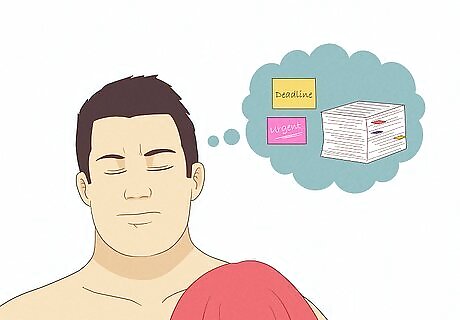
You may be depressed or suffer from other mental blocks, like stress. Depression can inhibit your body’s ability to respond to sexual stimuli, even if you mentally feel like you’re ready to go. And it’s not just depression—other conditions like excess stress or even OCD can get in the way of your performance in bed. While part of your mind might want sex, the other part is preoccupied with other things, like your responsibilities, doubts, or intrusive thoughts that get in the way of your body doing its thing. People with OCD, especially, commonly experience arousal non-concordance. They may experience intrusive thoughts that tell them things like they shouldn’t want sex, and those thoughts cause distress that tampers with the body’s natural sexual response.

You might have a history of sexual trauma that makes sex difficult. Sexual abuse or instances of rape are known to interfere with your body’s sexual responses after the fact. In these cases, even if you desire sex with your current partner, your body may be entering a defensive state to cope with a stimulus that, in the past, has caused you pain or distress. It’s a common experience among survivors of sexual assault, but that doesn’t make it any less difficult to navigate. If you’re a sexual abuse survivor experiencing arousal non-concordance, talk with a therapist about your experience. Professional counseling is often the best way to understand your history and your body.
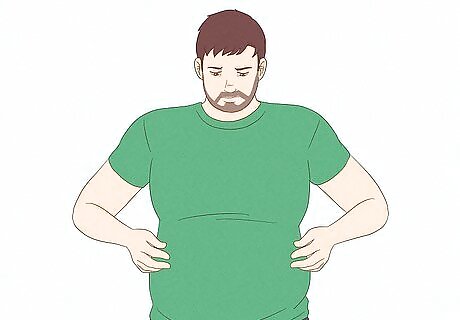
You might have issues with your body image or sexual performance. To many people, sex can be a bit daunting. They might be nervous about how attractive they are, or worry about whether or not they’ll perform well or satisfy their partners. These concerns sometimes get in the way of physical arousal, even when you otherwise want to have sex.. It could be that your mind is too busy worrying to get your body in gear. Practice open communication in your relationship to help you conquer these anxieties. Letting your partner know your insecurities or doubts about your sexual experiencing can go a long way toward overcoming them.
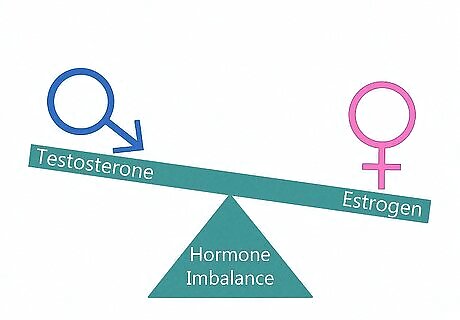
You may have imbalanced hormones. Much of your body’s physical response to sex is governed by hormones, and when those hormones become imbalanced for any reason, things can go sideways. Hormone imbalances can be caused by anything from stress, medications, steroid use, or even age. If you can’t put your finger on any cause, hormones may be to blame, and it may be time to talk to your doctor about your body’s processes.

You may be pregnant or experiencing menopause. Pregnancy comes with a host of changes to your body, and those changes often get in the way of sex. While pregnant, you may experience nausea, tiredness, or just plain lack of physical arousal while your body is busy doing other things. During menopause, too, your body undergoes certain physical changes that may interfere with sex or your physical sex drive. These changes are normal, but if they have a lasting impact on your libido, see a doctor to ask about getting treatment. Pregnancy is one of those causes that might not have a treatment other than patience. Talk to your partner about waiting until the pregnancy is over to have sex.

You may be on medication that inhibits physical arousal. Medications, while they can work wonders for many conditions, also might unexpectedly interfere with other bodily functions, especially sex. Antidepressants, blood pressure, and hormone-balancing medications in particular might prevent you from experiencing physical arousal. Common medications that cause arousal non-concordance include Zoloft, Prozac, SSRIs, and beta blockers.
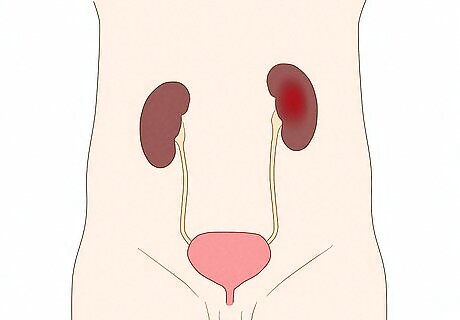
You might have a disease that inhibits sexual activity. A number of diseases are known to cause low libido or sexual dysfunction. These include cancer, kidney or heart disease, diabetes, and even arthritis. Take stock of any health conditions you might be aware of, and ask your doctor if they might be the cause of your sexual concerns. Often, medical intervention or medication is the best remedy in these cases.
How can I get my mental and physical arousal to match?
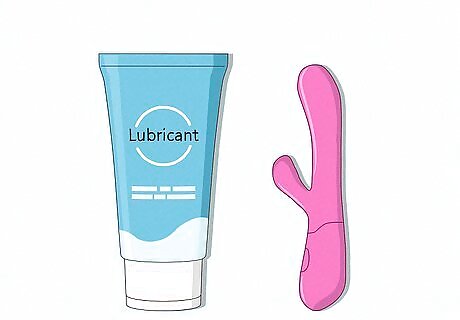
Use lubrication or other tools to stimulate your body. If you’re definitely into the idea of sex but you’re body’s just not getting with the program, try using lube to get things going. Often, the presence of a lubricant is enough to let your body know that it’s time. Or, try using sex toys like vibrators to wake your body up, if the usual things like intercourse just aren’t cutting it. External stimulation might be just what you need! Also, don’t be afraid to masturbate before or during sex. Masturbation is a natural activity, and your body might respond better to a more familiar stimulus. If you’re using condoms, use a water-based lubricant. Others may deteriorate the condom, leading to exposure to STDs or pregnancy.
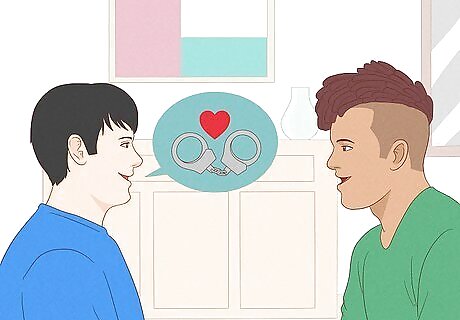
Talk to your partner about what you enjoy in bed. If you believe your arousal non-concordance might be caused by the sex itself, have an honest talk with your partner about what you find pleasurable in bed. Sometimes, we’re reluctant to have these conversations for fear of insulting our partner, but this is an opportunity to let them know what you like, and even learn more about what they like, improving your sex life in the process. Say something like, “I love having sex with you, but lately something’s not working. Can we try this instead?”
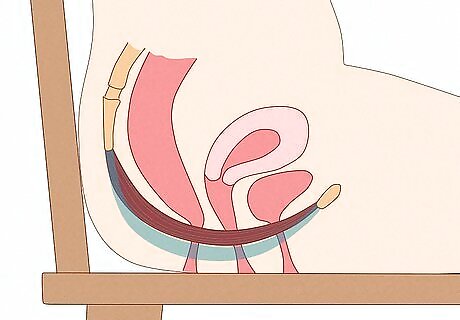
Perform kegels or exercise regularly to maintain your sexual health. Kegels are a simple exercise that can improve blood flow to your genitals (especially in women), which can in turn aid in sexual arousal and lubrication. In addition, regular, moderate exercise for periods of 30 minutes each day can improve overall bloodflow, promoting sexual health. To perform kegels, sit upright and tense the muscles you’d use to prevent urination for 10 seconds, then relax for 10 seconds. Do 10-15 kegels immediately before sex, or perform 30-40 in sets of 10 throughout your day.

Limit your alcohol or drug use before sex. Alcohol, as well as many drugs, are “downers” that suppress your body’s natural processes, including physical arousal. Even drugs that are “uppers,” or which promote physical activity, can interfere. Abstain from these for 24 hours before sex to help you maintain control of your body, and to allow it to respond appropriately to sexual stimuli. If you’re at a bar or another place that serves drinks, consider asking for a non-alcoholic beverage or a virgin cocktail, instead.
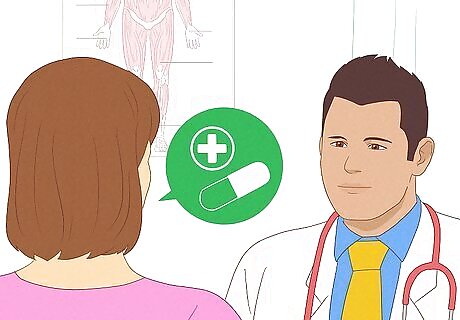
Ask a doctor about medication for physical arousal. If you suspect that your arousal non-concordance might be caused by biological factors outside your control, like diseases or medications, it’s best to talk to your doctor. Ask them about medications that might increase your libido, or if any of your current medications may be interfering with your sexual health. They may prescribe new medications or alter your existing dosages to help. Your doctor may prescribe drugs like Viagra or Cialis to increase blood flow to the penis, or hormonal medications to aid in stimulating the vagina.

Talk to a therapist to resolve mental blocks. If you think your lack of physical arousal may be caused by psychological blocks, like sexual trauma, anxiety, depression, or stress, speak with a therapist about your concerns. A psychologist, therapist, or sexual counselor will be able to diagnose the root cause of your condition and help you find a way forward. There’s not shame in seeking professional help; we all need someone to help us better understand our bodies every now and then!

















Comments
0 comment